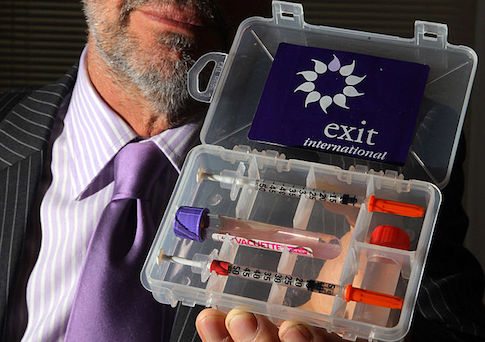Zero people have obtained lethal doses of medication in Washington, D.C., since the District legalized physician-assisted suicide in 2017.
After a hard-fought legislative campaign to allow doctors to prescribe lethal medication to terminally ill patients, as well as threats from Congress to strike down the law, Washington, D.C., has yet to see a patient use physician-assisted suicide. Additionally, doctors in the nation's capital also appear to have balked at registering to participate in the practice; only 2 of D.C.'s 11,000 licensed physicians can do so, according to the Washington Post. Matthew Valliere, executive director of the Patients Rights Action Fund, said the inactivity was a welcome development in caring for patients with terminal illnesses.
"The welcome fact that patients and doctors are unwilling to participate in assisted suicide is evidence of the flawed nature of this misguided public policy," he said. "Neither wish to be implicated in a practice that disadvantages people who are poor, sick, elderly or who live with a disability."
Compassion & Choices, which championed the bill before the D.C. City Council in 2016, said low participation reflects a botched implementation, rather than a lack of interest from patients and doctors.
Kat West, the group's director of policy and programs, contrasted D.C.'s implementation with six states that already allow assisted suicide, which supporters call "medical aid in dying." The root of the problem lies with treating assisted suicide as a "program rather than a medical practice." The city developed registries for providers complete with online educational materials they must navigate through before being able to participate. Educational materials are also available to patients on a Department of Health website. Other states leave those types of materials to be discussed at the doctor’s office, rather than a government website, according to West. She criticized the city for making access "overly complicated and burdensome."
"There's no way dying patients or their doctors can get through this [administrative] process," West said. "It's not for the Department of Health to provide this type of support. This is for doctors to do."
The Department of Health did not respond to request for comment about West's criticism or about how the agency handled implementation. Agency director LaQuandra Nesbitt defended its handling of physician-assisted suicide before the City Council on April 6.
"I’m not a gatekeeper to the patients. The program is launched," Nesbitt said, according to the Washington Post. "I don’t interfere in a patient-physician relationship."
The Patients Rights Action Fund, a nonprofit organization that campaigns against physician-assisted suicide, praised the city for taking a practical and cautious approach to implementation. The registration process and department oversight will help to protect vulnerable patients from being pressured into committing suicide rather than pursuing additional treatment or alternative pain management practices, such as hospice and palliative care, according to Valliere.
"Before the District of Columbia enacted a law to allow assisted suicide, many warned that it would put people who are terminally ill, poor, elderly, or with disabilities in jeopardy of deadly harm through mistakes, coercion, and abuse," Valliere said. "No safeguard could eliminate that risk. Eroding what little safeguards there are, however, in order to encourage leery doctors to participate in this flawed law is grossly imprudent."
Compassion & Choices said it has received multiple requests from D.C. patients and doctors eager to pursue assisted suicide since the City Council passed legislation in 2016. West said the group had also spoken to health systems in the region about participating, though only one has so far registered. If the agency can reduce the burden in the "incredibly elaborate program," the bill can begin working as it was designed. It also helps that Congress failed to veto the practice in the Omnibus funding bill, despite the House voting to overturn the D.C. law in 2017. The group expects more hospitals to register now that the potential for a veto has been delayed.
"I know patients are interested," West said.
Rep. Brad Wenstrup (R., Ohio), who sponsored a resolution condemning assisted suicide in 2017, said he is still working to reverse D.C.'s embrace of assisted suicide, but was pleased that the new medical regime has yet to affect any patients.
"I am encouraged that the majority of physicians in D.C. are electing to adhere to their Hippocratic Oath of 'do no harm.' Allowing—or even encouraging—doctors to violate the Hippocratic Oath puts a critical protection for the most vulnerable patients in jeopardy," Wenstrup said. "Unfortunately, we were unable to put language repealing the D.C. physician-assisted suicide law in to recent spending legislation, but I am hopeful that we will be able to do so in next year’s legislation."
